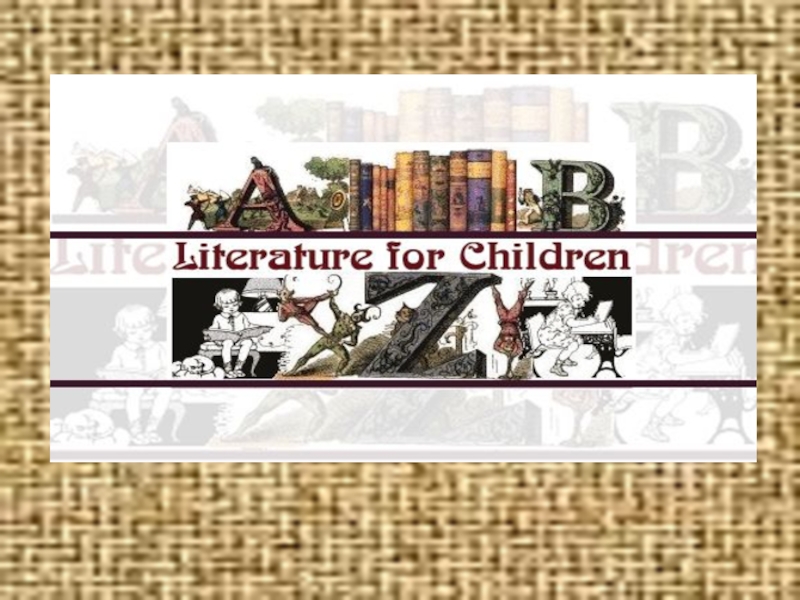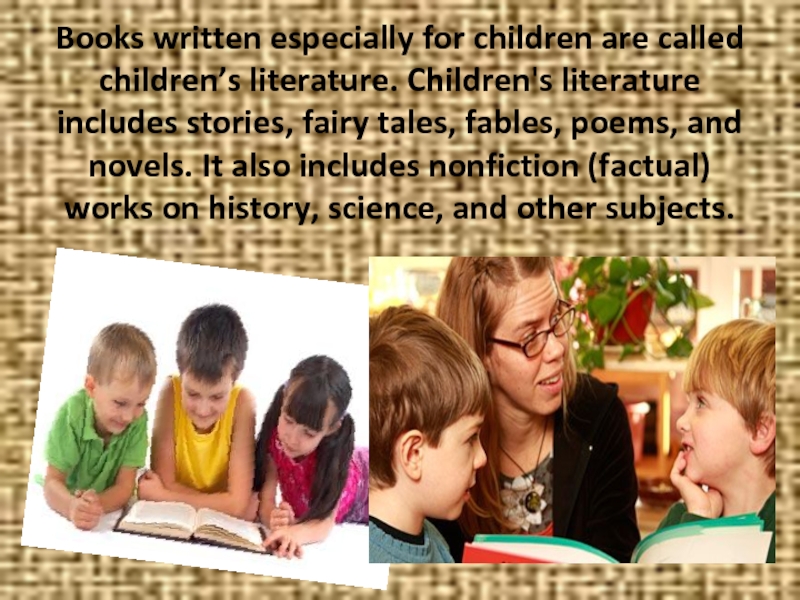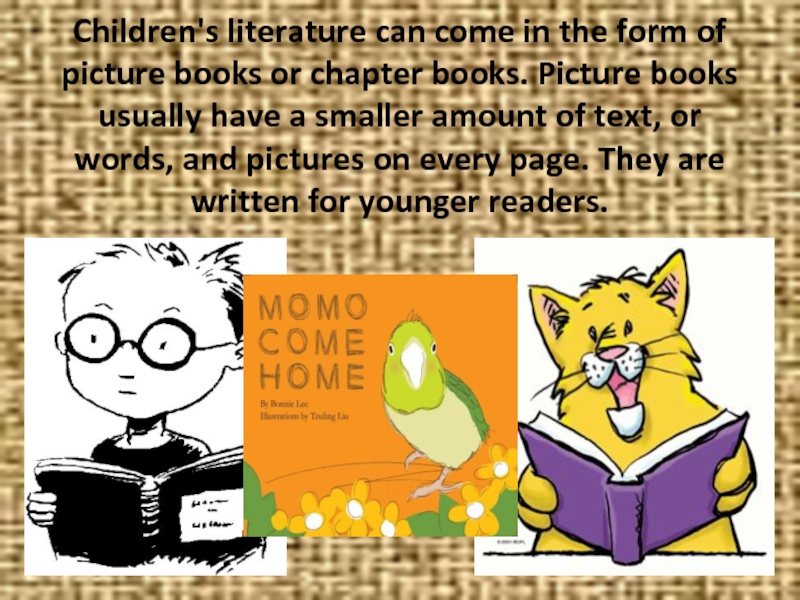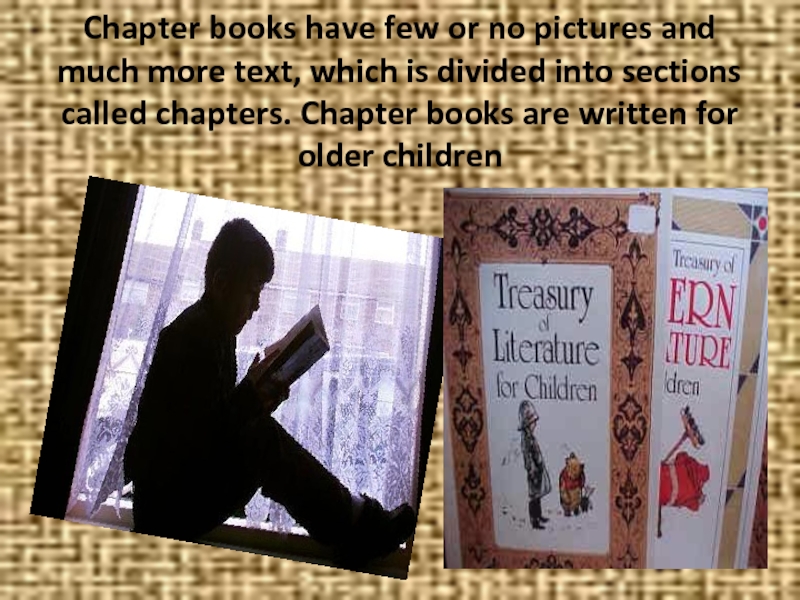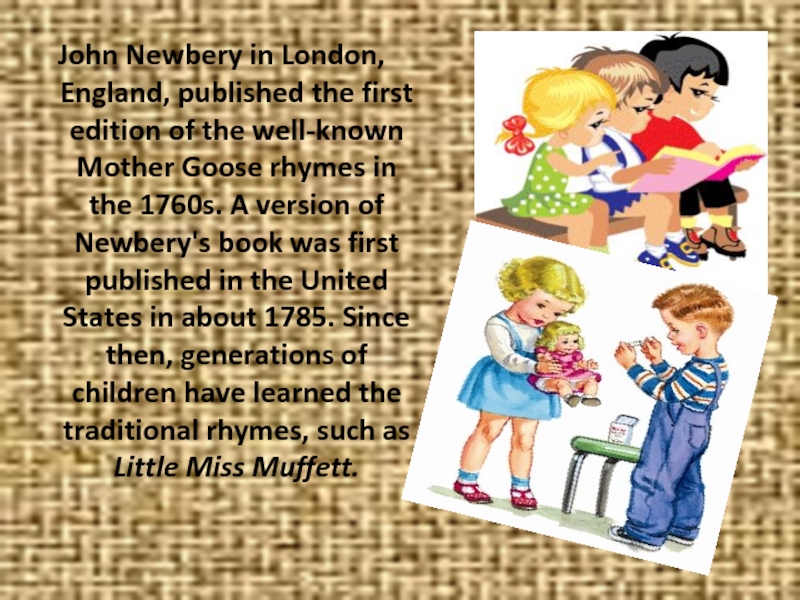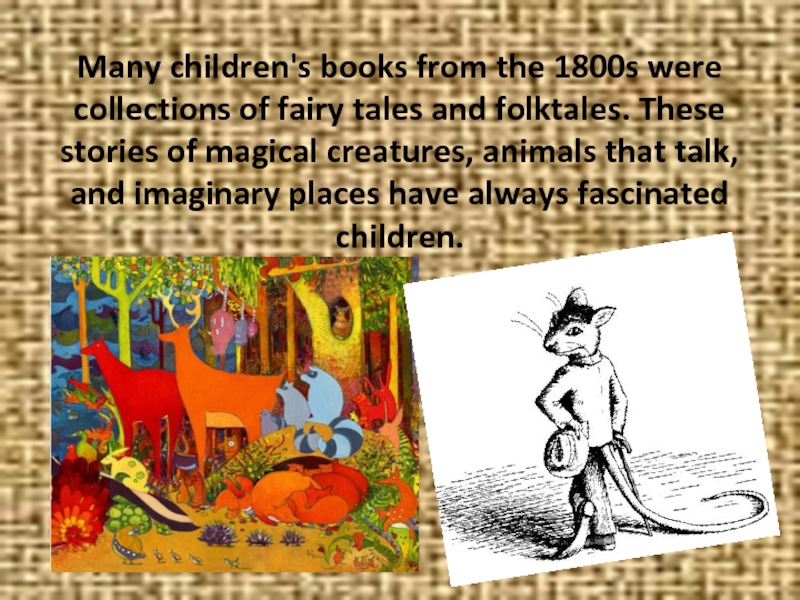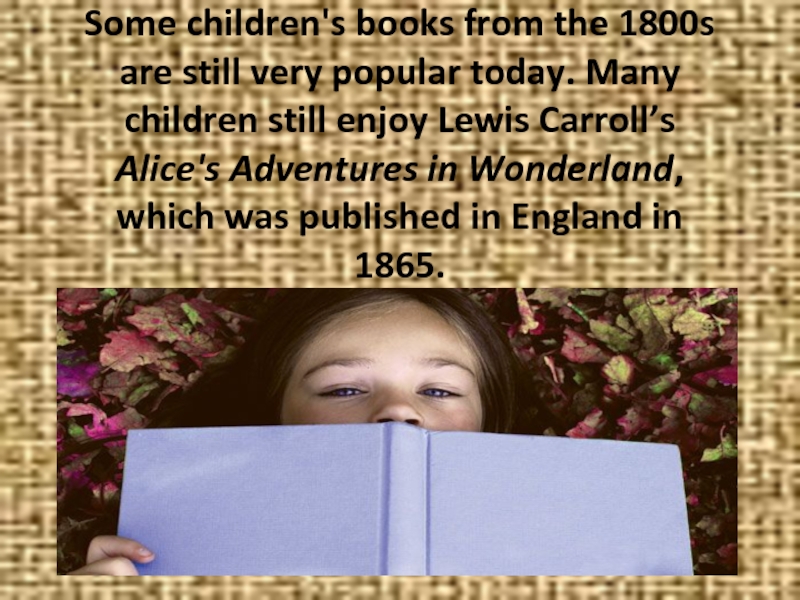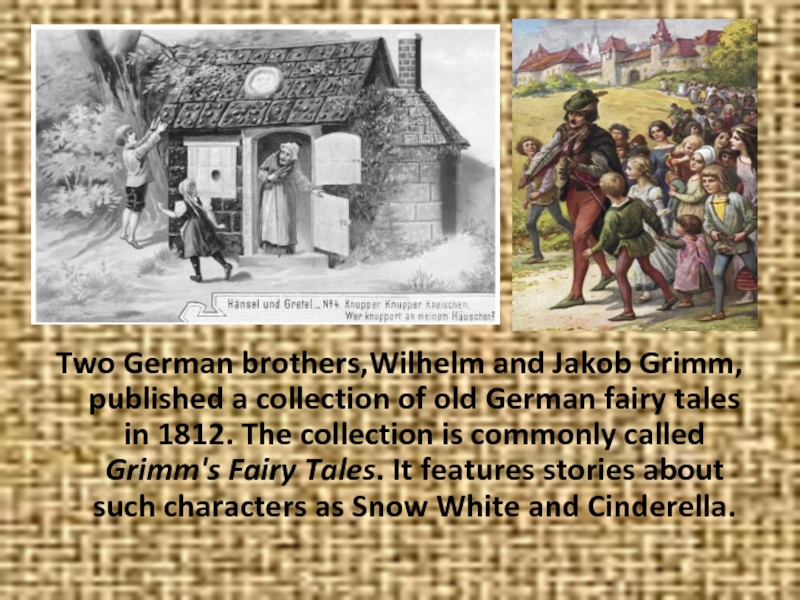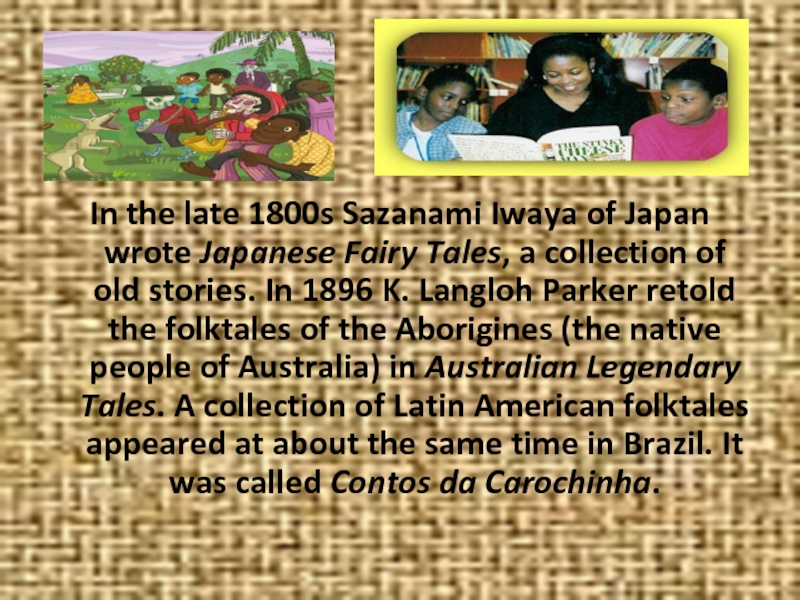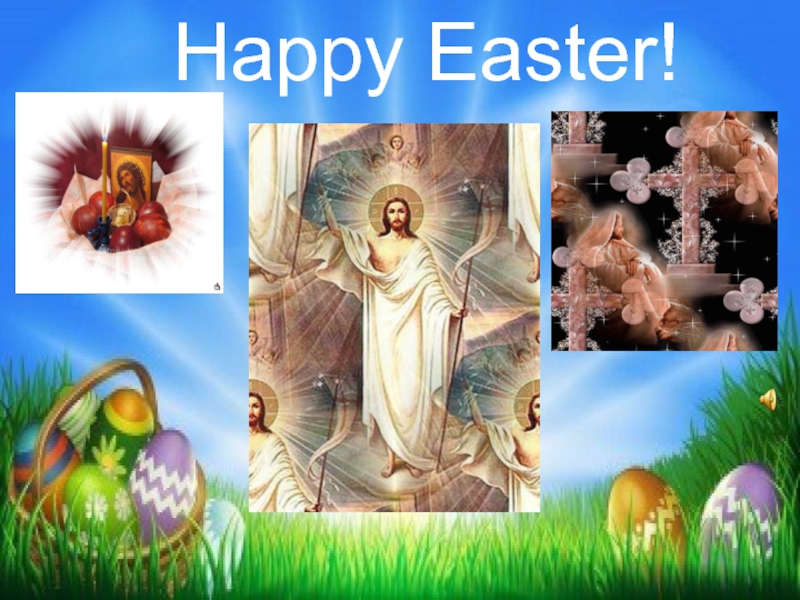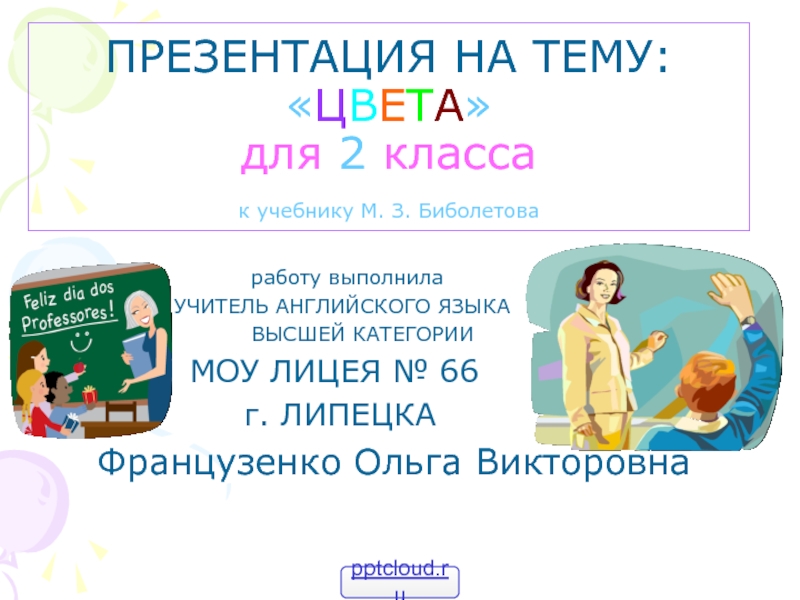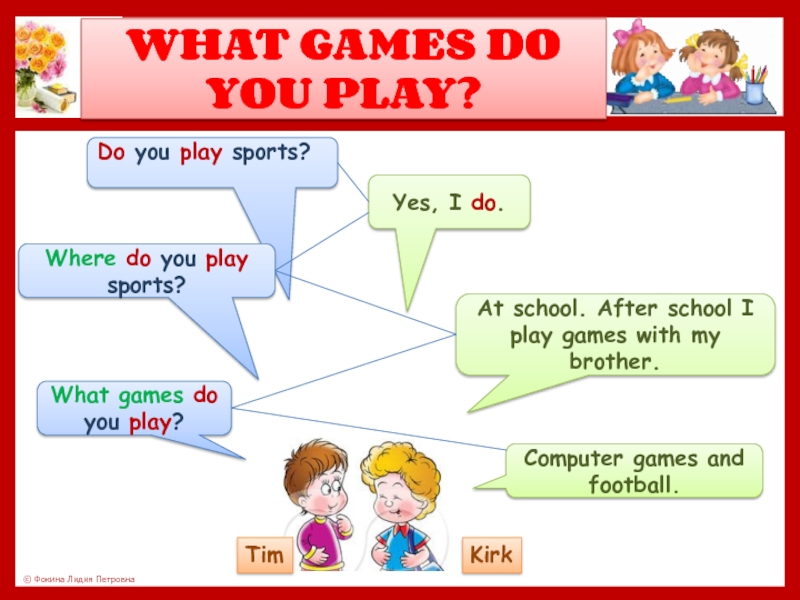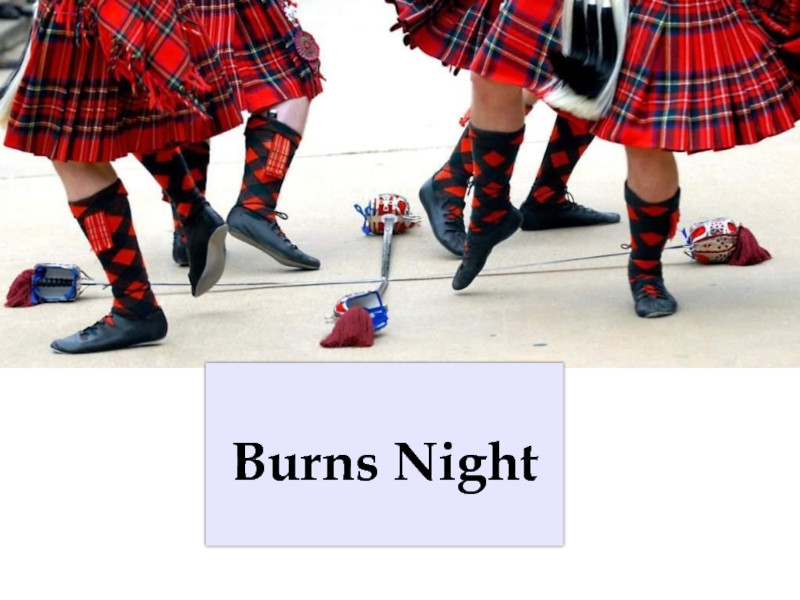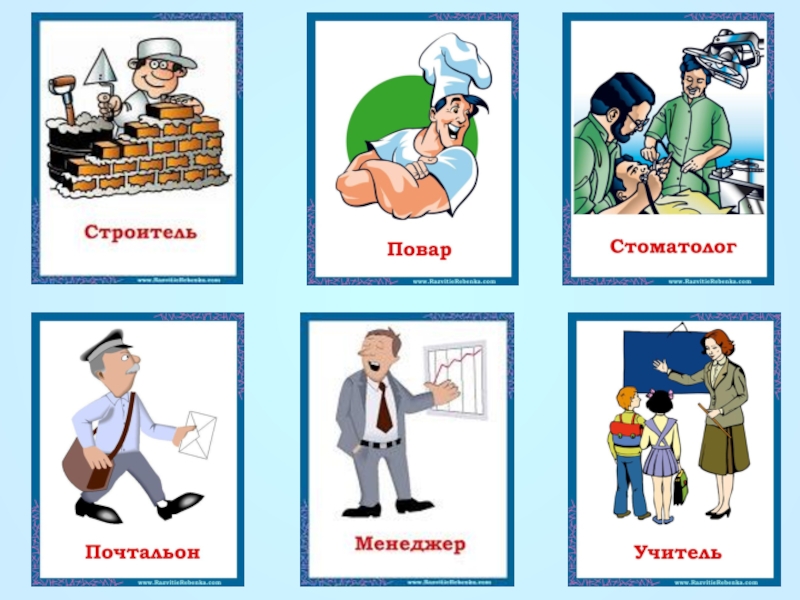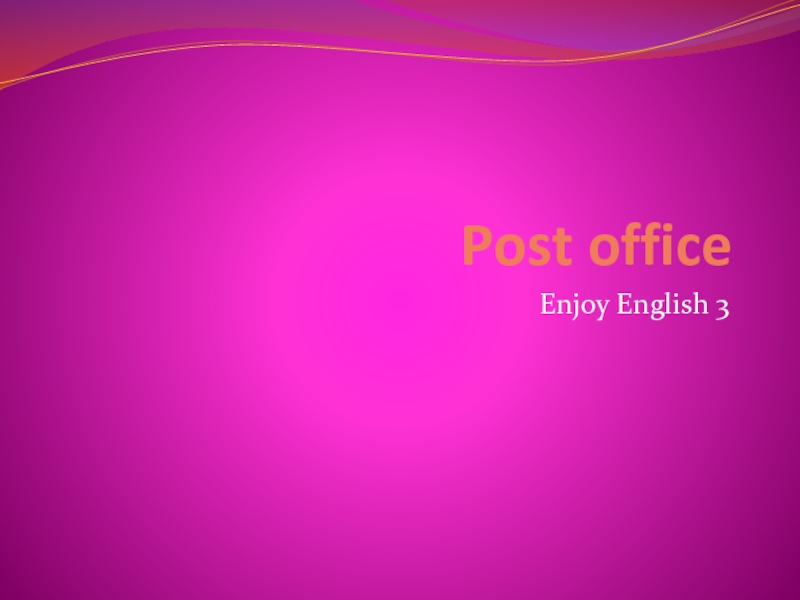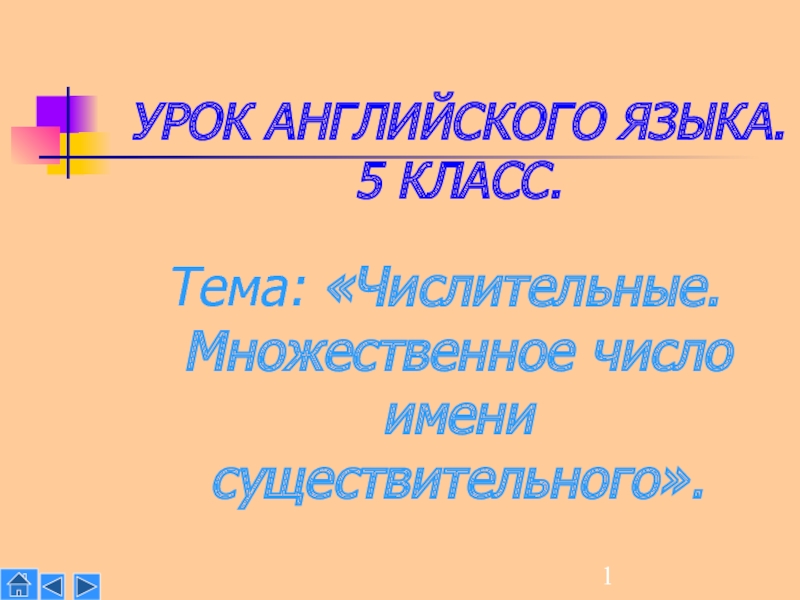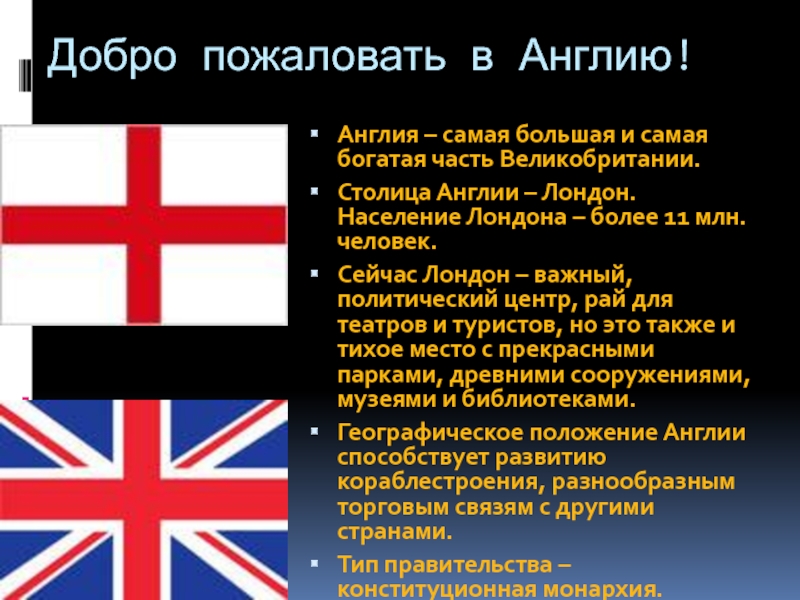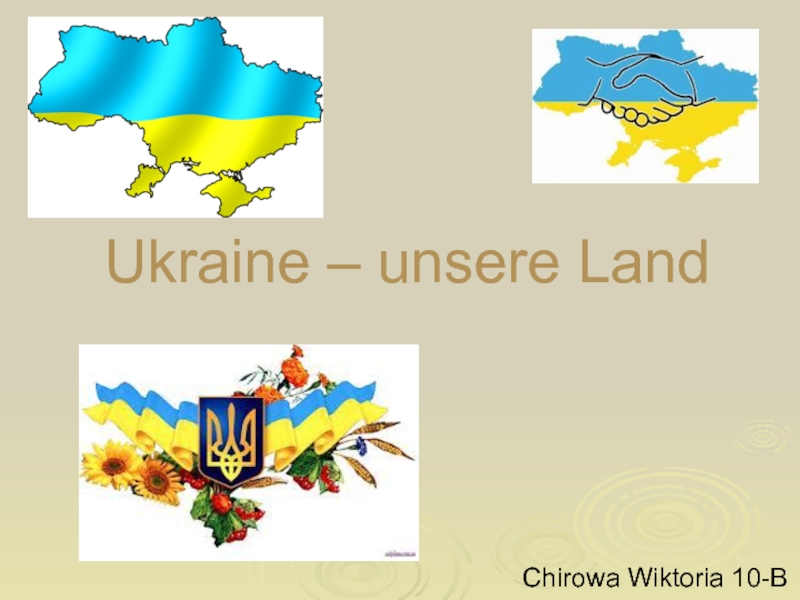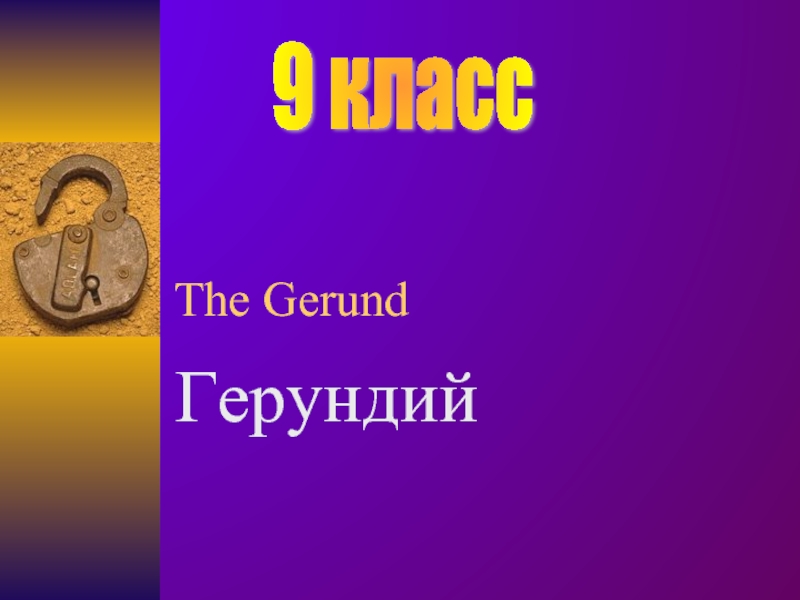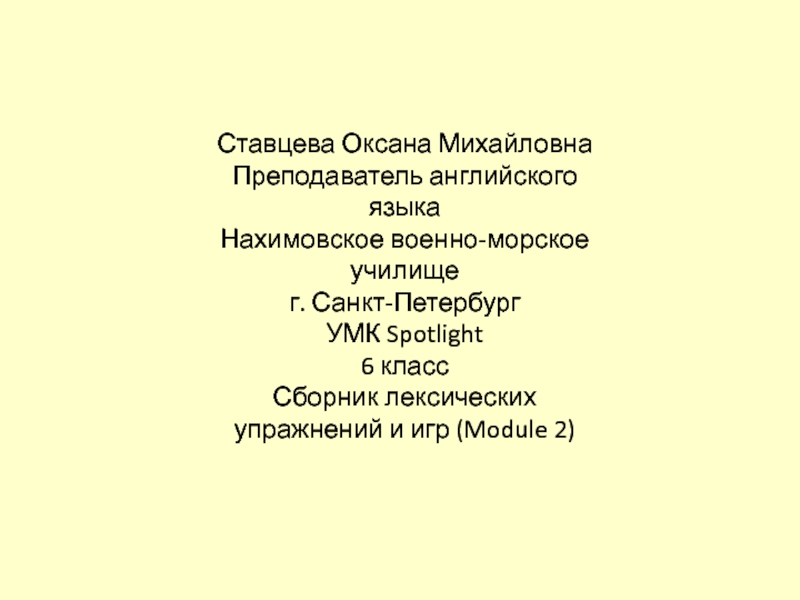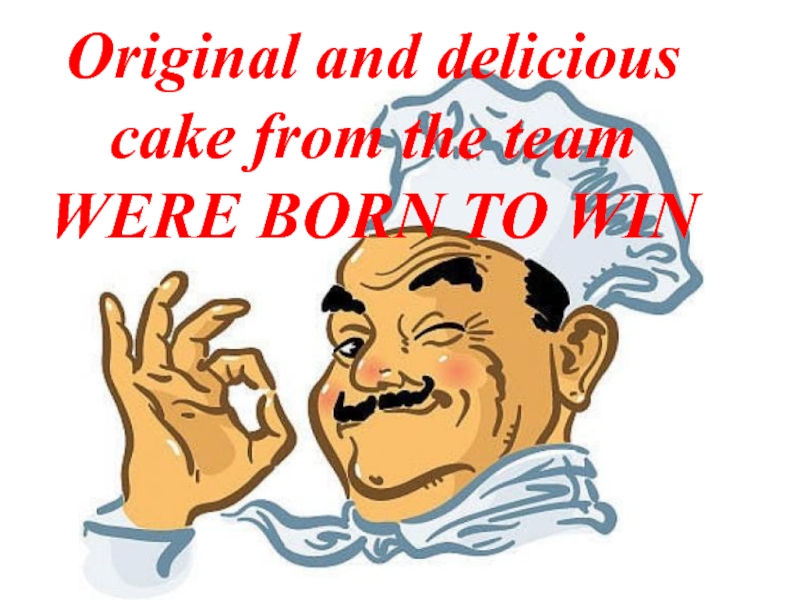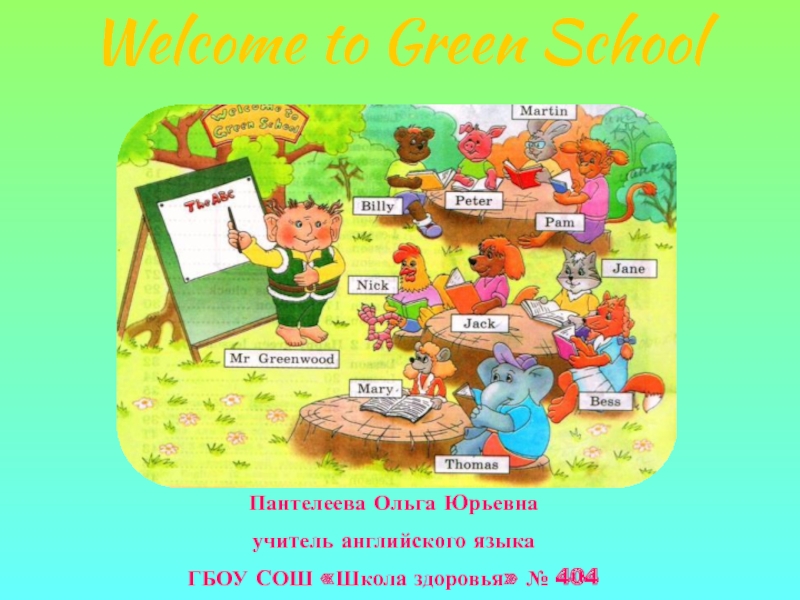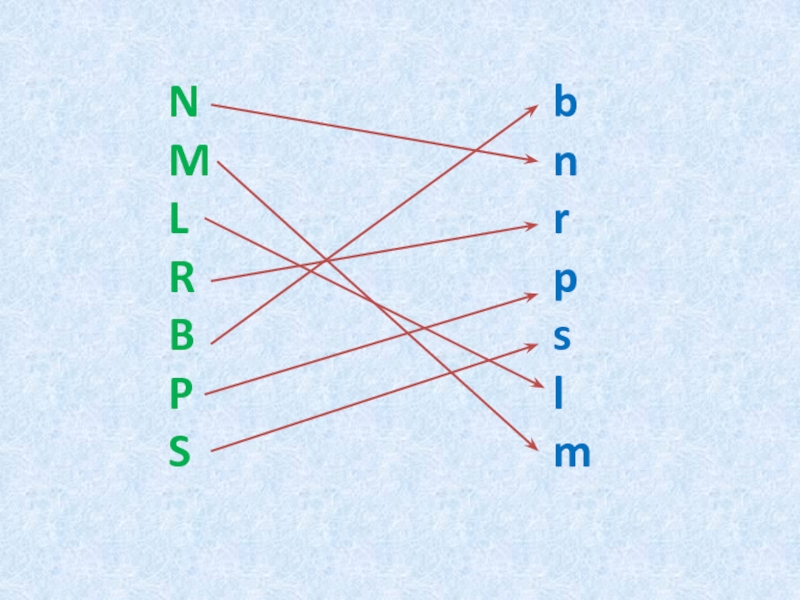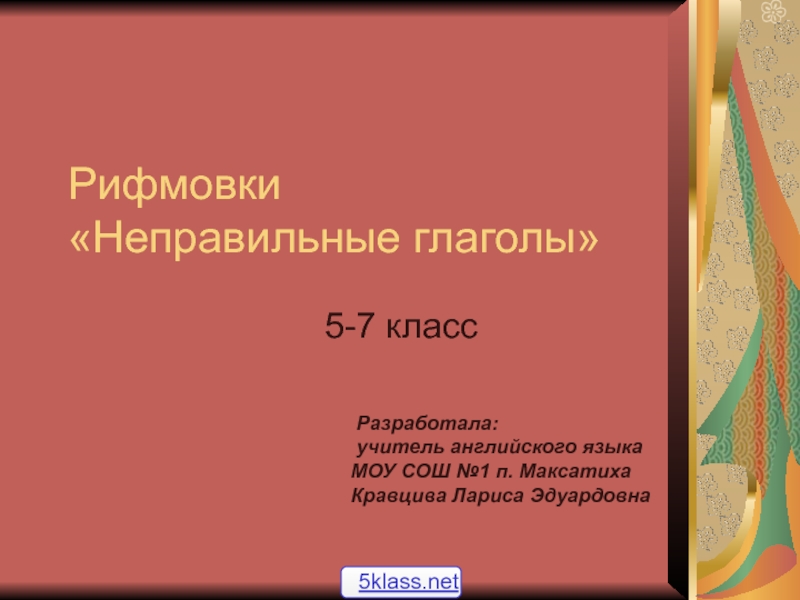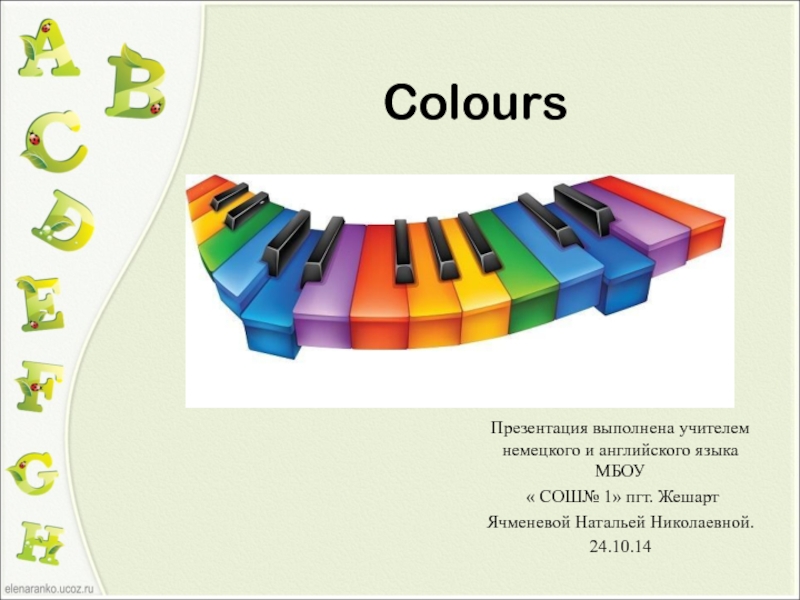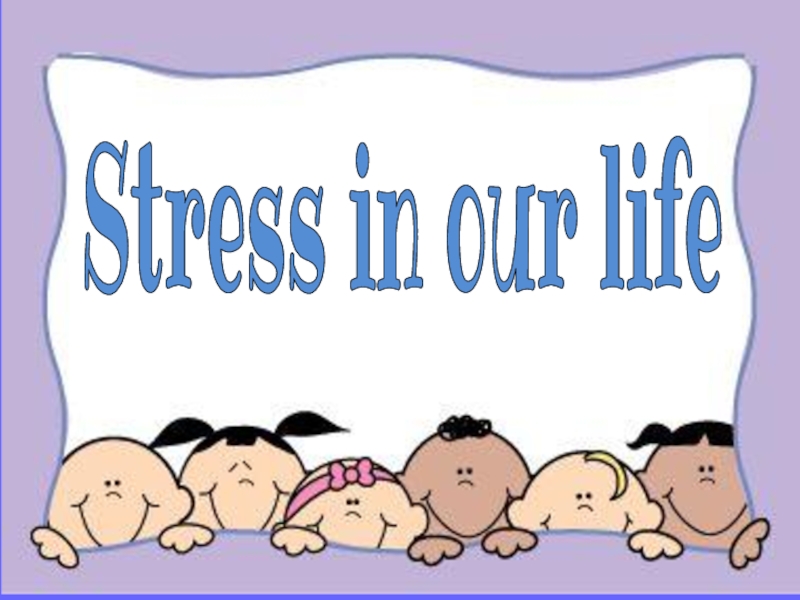Разделы презентаций
- Разное
- Английский язык
- Астрономия
- Алгебра
- Биология
- География
- Геометрия
- Детские презентации
- Информатика
- История
- Литература
- Математика
- Медицина
- Менеджмент
- Музыка
- МХК
- Немецкий язык
- ОБЖ
- Обществознание
- Окружающий мир
- Педагогика
- Русский язык
- Технология
- Физика
- Философия
- Химия
- Шаблоны, картинки для презентаций
- Экология
- Экономика
- Юриспруденция
Literature for Children
Содержание
- 1. Literature for Children
- 2. Books written especially for children are called
- 3. Children's literature can come in the form
- 4. Chapter books have few or no pictures
- 5. Many countries give good children's books special
- 6. The best-known international award is the Hans
- 7. Until a few hundred years ago, few
- 8. Most of this early writing was not
- 9. 1700sMany of the books read by children
- 10. John Newbery in London, England, published the
- 11. 1800sBy the 1800s children's books were becoming
- 12. Many children's books from the 1800s were
- 13. Some children's books from the 1800s are
- 14. Two German brothers,Wilhelm and Jakob Grimm, published
- 15. In the late 1800s Sazanami Iwaya of
- 16. 1900s and TodayThe 1900s saw an explosion in the number of children's books being published.
- 17. People in many countries continued to collect
- 18. In Great Britain and the United States
- 19. The Wonderful Wizard of Oz (1900) by
- 20. The playful poetry, funny characters, and fanciful
- 21. Other children's literature of the 1900s showed
- 22. J.K. Rowling's popular Harry Potter books of
- 23. Скачать презентанцию
Books written especially for children are called children’s literature. Children's literature includes stories, fairy tales, fables, poems, and novels. It also includes nonfiction (factual) works on history, science, and other subjects.
Слайды и текст этой презентации
Слайд 3Children's literature can come in the form of picture books
or chapter books. Picture books usually have a smaller amount
of text, or words, and pictures on every page. They are written for younger readers.Слайд 4Chapter books have few or no pictures and much more
text, which is divided into sections called chapters. Chapter books
are written for older childrenСлайд 5Many countries give good children's books special attention through awards
and prizes. In the United States the two most important
prizes for children's literature are the Newbery Medal and the Caldecott Medal.Слайд 6The best-known international award is the Hans Christian Andersen Award.
Another important international award is the Astrid Lindgren Memorial Award.
Слайд 7Until a few hundred years ago, few books were written
for children at all. The first literature especially for children
was published in Europe in the 1600s.
Слайд 8Most of this early writing was not meant to entertain
children. Its purpose was to teach children lessons.
Слайд 9
1700s
Many of the books read by children during the 1700s
were books written for adults. These were adventurous stories with
interesting characters. For example, Daniel Defoe's Robinson Crusoe (1719) tells the story of a man who is shipwrecked on a deserted island. Another such book was Jonathan Swift's Gulliver's Travels (1726). It is about the adventures of a traveler in strange lands.Слайд 10
John Newbery in London, England, published the first edition of
the well-known Mother Goose rhymes in the 1760s. A version
of Newbery's book was first published in the United States in about 1785. Since then, generations of children have learned the traditional rhymes, such as Little Miss Muffett.Слайд 11
1800s
By the 1800s children's books were becoming an important kind
of literature. Authors began making their stories more interesting and
imaginative.Слайд 12Many children's books from the 1800s were collections of fairy
tales and folktales. These stories of magical creatures, animals that
talk, and imaginary places have always fascinated children.Слайд 13Some children's books from the 1800s are still very popular
today. Many children still enjoy Lewis Carroll’s Alice's Adventures in
Wonderland, which was published in England in 1865.
Слайд 14
Two German brothers,Wilhelm and Jakob Grimm, published a collection of
old German fairy tales in 1812. The collection is commonly
called Grimm's Fairy Tales. It features stories about such characters as Snow White and Cinderella.Слайд 15
In the late 1800s Sazanami Iwaya of Japan wrote Japanese
Fairy Tales, a collection of old stories. In 1896 K.
Langloh Parker retold the folktales of the Aborigines (the native people of Australia) in Australian Legendary Tales. A collection of Latin American folktales appeared at about the same time in Brazil. It was called Contos da Carochinha.Слайд 16
1900s and Today
The 1900s saw an explosion in the number
of children's books being published.
Слайд 17People in many countries continued to collect and publish folktales
so that the stories could be shared with children in
other parts of the world.Слайд 18
In Great Britain and the United States much children's literature
of this time focused on interesting characters in fantastic worlds.
Слайд 19The Wonderful Wizard of Oz (1900) by L. Frank Baum,
Winnie-the-Pooh (1926) by A.A. Milne, and Charlotte's Web (1952) by
E.B. White are good examples.Слайд 20The playful poetry, funny characters, and fanciful drawings of the
many books by Dr. Seuss also fit in this category.
He published The Cat in the Hat in 1957.Слайд 21Other children's literature of the 1900s showed realistic characters facing
the difficulties of growing up. Lucy Maud Montgomery's Anne of
Green Gables (1908), Katherine Paterson's Bridge to Terabithia (1977), and the novels of Judy Blume are examples.Слайд 22J.K. Rowling's popular Harry Potter books of the late 1900s
and early 2000s have a magical setting. However, they also
realistically show the emotions of young people.
Теги
